Profesora investigadora en Productos Naturales
LINEAS DE TRABAJO: Fitoquímica, Antioxidante, RMN
PRODUCTOS DESTACADOS
Antiproliferative activity of extracts of Gnaphalium Gracile H.B.K. against cancer cell lines
Fecha de publicación: 30/08/2018
Ethanol and n-hexane extracts obtained from the leaves and inflorescences of Gnaphalium gracile, were tested at different concentrations to evaluate their antineoplastic activities on pancreatic, colon, and prostate cancer cell lines by examining mitochondrial function. The polar extracts of both, leaves and inflorescences which contain gnaphalin, quercetin, and 3-methoxy quercetin, exhibited cytotoxicity against every cell line tested with EC50 values ranging between 20.23±1.185 µg/mL and 70.71±1.1419 µg/mL. The most remarkable values were observed in pancreatic cancer Panc 28 and androgen-dependent prostate LnCaP cells, with EC50 values of 20.23±1.185 and ˂25µg/mL, and androgen-independent prostate cancer PC-3, colon HCT-116 and pancreatic MIA PaCa cells with values ranging between 28.84±1.1766 and 34.41±1.057 µg/mL. The non-polar extract derived from leaves demonstrated significant cytotoxicity towards colon cancer HCT-116 cells, with an EC50 of 39.46±1.0617 µg/mL. However, the non-polar extract from the inflorescences did not have an appreciable effect on cell proliferation of any of the cell lines tested except for androgen-independent prostate cancer PC-3 cells with an EC50 of 62.05±1.237 µg/mL. The data obtained support the traditional use of G. gracile and suggest the polar extracts from aerial parts, as an interesting source for the development of novel antineoplastic agents. © 2018, SILAE (Italo-Latin American Society of Ethnomedicine). All rights reserved.
Más información ⇨
- « Anterior
- 1
- 2
- 3
- 4
- Siguiente »

